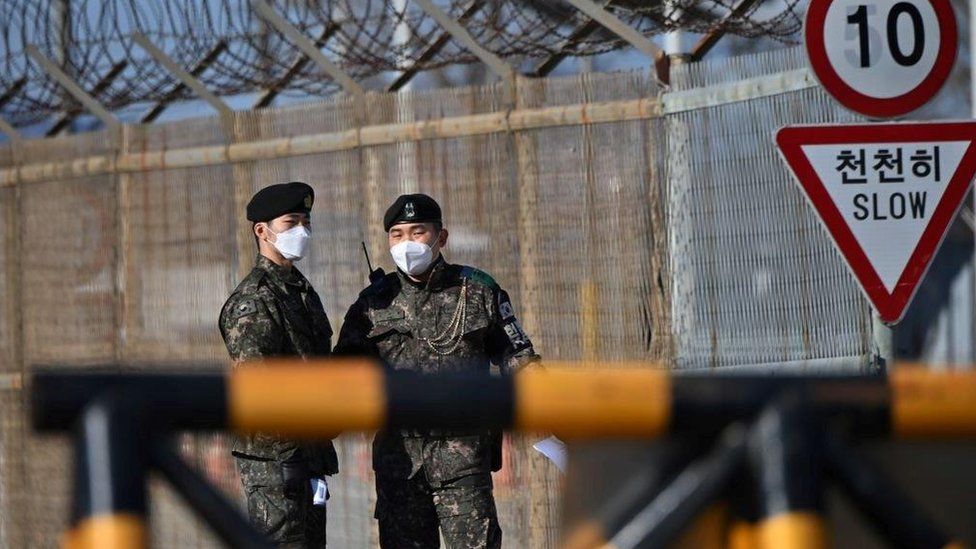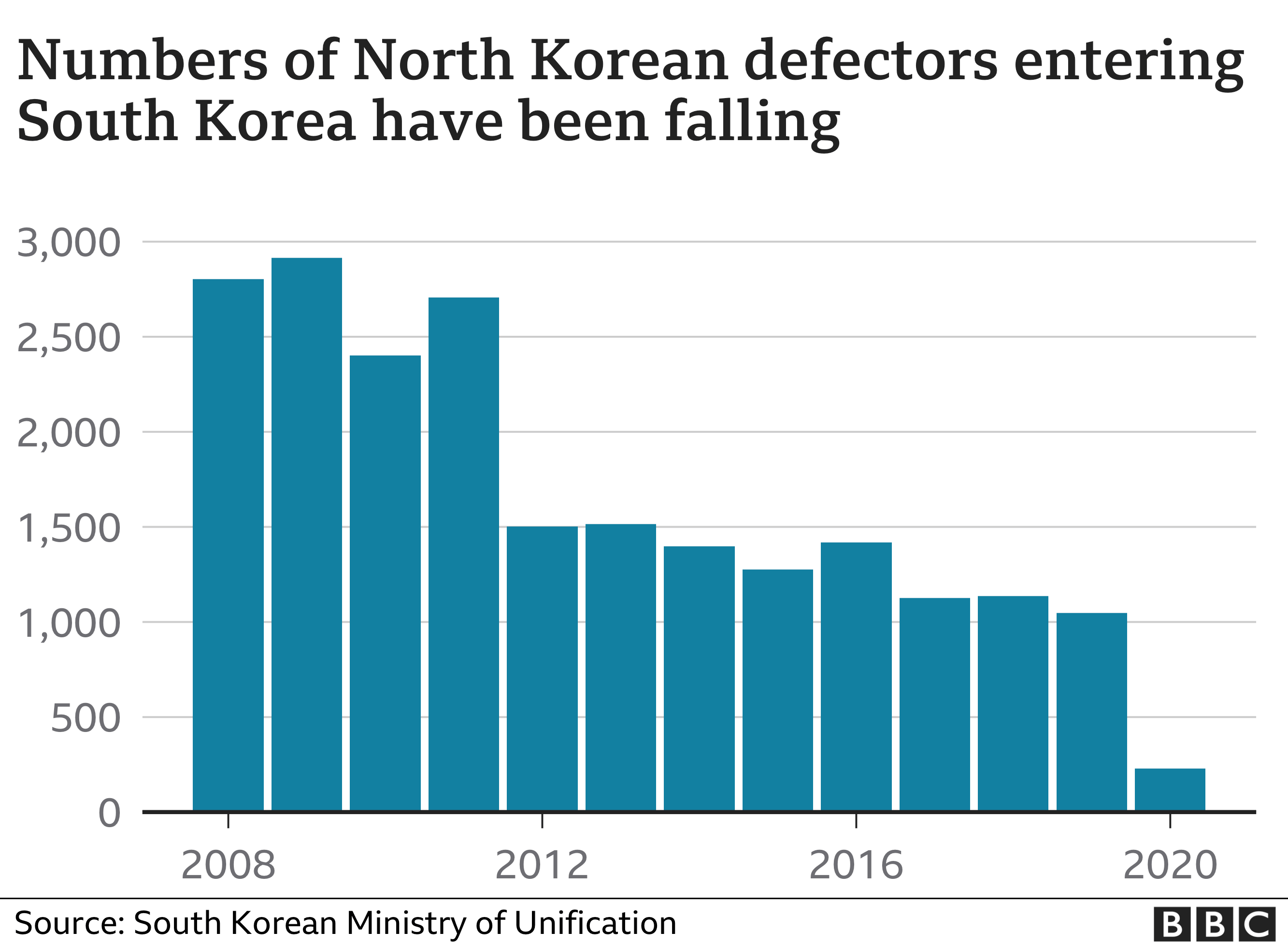North Korea man wandered for hours in DMZ amid South's security blunders
 image copyrightGetty Images
image copyrightGetty ImagesSouth Korean troops failed to notice a North Korean man who crossed the heavily fortified border this month even though he appeared on TV cameras eight times and triggered alarms.
South Korea's army said it would take this moment to make necessary changes.
The man swam in from the sea in a wet suit, walked 5km and spent three hours undetected before troops finally took action on his ninth TV appearance.
It is unclear why he made the crossing via such a dangerous route.
At one point the man passed through a drainage tunnel in the demilitarised zone (DMZ) the South Korean military did not even know existed, the Yonhap news agency reported.
This is despite the zone being one of the most heavily fortified and sensor-dominated in the world.
What happened on the journey?
The latest details have come from a report by South Korea's Joint Chiefs of Staff (JCS) into the security lapses on 16 February. The JCS have refused to identify the man and are investigating whether he was trying to defect.
It is not known where his journey started, but he came ashore in a wetsuit and flippers at 01:05, close to a South Korean observatory, north of the eastern border town of Goseong.


He hid the suit and flippers under a rock and then followed barbed wire fences south along the beach.
He then entered the drainage tunnel and crossed into the DMZ.
The man then moved along a road undetected for more than 5km (three miles) until 04:16.
His ninth appearance on a CCTV camera at this point led troops to report his presence.
The military found him at 07:27. The report said he had been looking for civilians to turn himself in to, as he feared soldiers might return him to the North.
What were the security lapses?
Surveillance cameras spotted the man several times between 01:05 and 01:38, with alarms going off twice. No action was taken.
Military CCTVs caught the man another three times at about 04:00.
A JCS official told Yonhap that the soldier in charge of coastal surveillance equipment was making adjustments at the time and thought the alarms were a system error.
Some have queried whether the man, a civilian working in the fishing industry, had swum from North Korea as claimed, given the cold winter conditions. There was speculation that he could have made some of the journey by boat instead.
However, the JCS said it believed the man had swum over, saying his wetsuit was in good condition and the tide would have helped.
This is the second time in four months that questions have been raised about security at the DMZ.
After a former gymnast defected last November by jumping over the border fence, South Korea's military announced it would check every sensor.
The latest event has led to an inquiry into the 22nd Division, which is in charge of that area of the DMZ.
Are defections frequent?
Since taking power in 2011, North Korean leader Kim Jong-un is believed to have ordered the tightening of border controls between the two sides and with China, including by laying more landmines.
But about 1,000 people defect from North Korea each year, fleeing a repressive state that has faced numerous accusations of human rights abuses.
Most North Koreans escape by crossing over the border to China, where they risk being sent back to the North.
Crossing via the DMZ is dangerous. If spotted and arrested by the North Korean military, those trying to cross would certainly be taken to a detention centre to be interrogated. They could be tried and sentenced to lengthy terms in labour camps.
The border and its fortifications have been in place since the Korean War ended in an armistice in 1953. North and South Korea remain technically at war as the fighting did not end with a peace treaty.




No comments